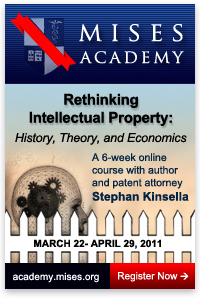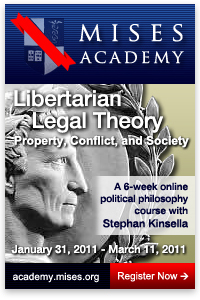On Decapitating the State
Anti-Statism, Libertarian TheoryIn Hans-Hermann Hoppe’s writings on problems with democracy, he points out that one advantage of monarchy over democracy is that there is a clearer distinction between the ruler and the ruled; so that if the monarch starts to become despotic, he can at least in principle be killed or removed from power. At least the people know who to aim their ire at. In democracy, the state is bureaucratized and distributed, and the line between ruler and ruled is blurred–because citizens can vote, they accept the propaganda that “we are the government.”
Recent protests in Egypt, Libya, Bahrain, and Yemen help illustrate this–there, the people are fed up with rule by brutal strongmen, thugs and dictators, so demand their ouster. Success is not guaranteed but the people at least have a target for their anger. In the western democracies, protests of this type are inconceivable. Half the country voted for Obama, so there would never be mass protests. And he’ll be out of office in 2 or 6 years in any case, so why bother protesting to kick him out a bit earlier. And even if he is somehow ousted, he’ll be replaced with another plastic man. While regicide is possible with a monarchy or even dictatorship, it’s not so easy to decapitate a democratic state; it’s more like a hydra. The most we can expect in a democracy are protests by special interest groups demanding more loot from the state (such as the pathetic protests by the state teachers’ unions in Wisconsin) or reform of a particular law (such as medical marijuana or gay marriage). And when 5% of the populace pays most of the income tax, don’t expect widespread protests against confiscatory tax rates.
This is not to say that rule by dictatorial thugs is preferable to modern democracy–Hoppe’s work compares modern democracy to limited, traditional monarchies, not to dictators and absolute emperors–but it does help highlight why it’s so difficult to reform a democratic state.
[LRC cross-post]
On Decapitating the State Read Post »


